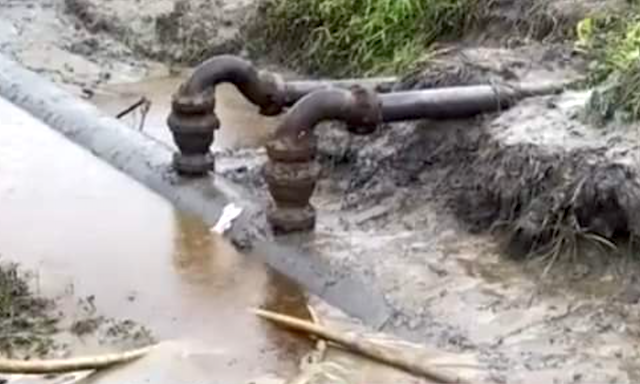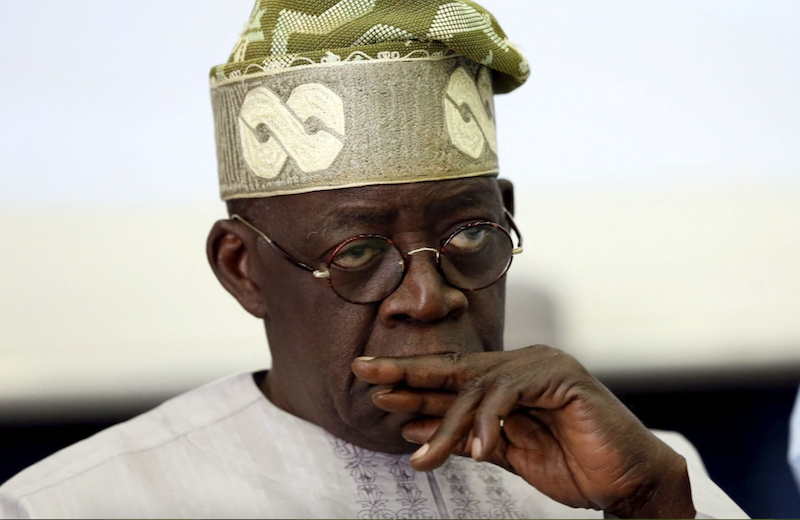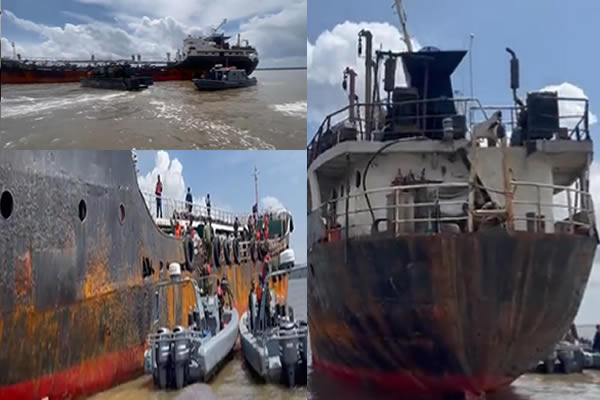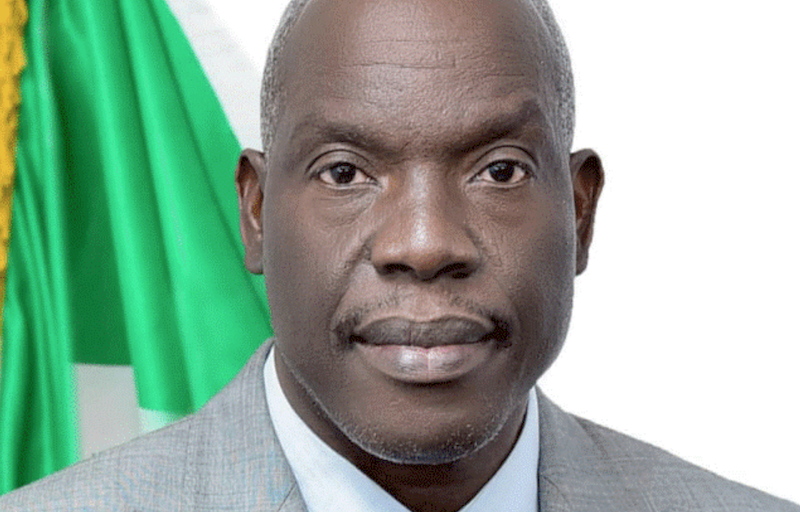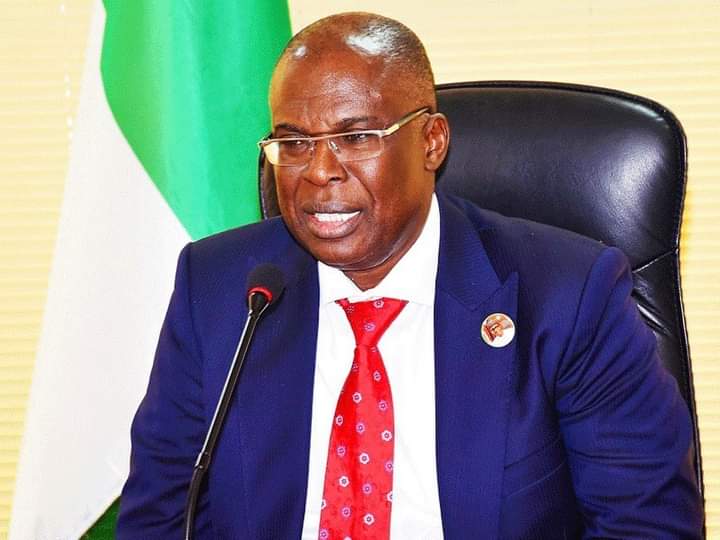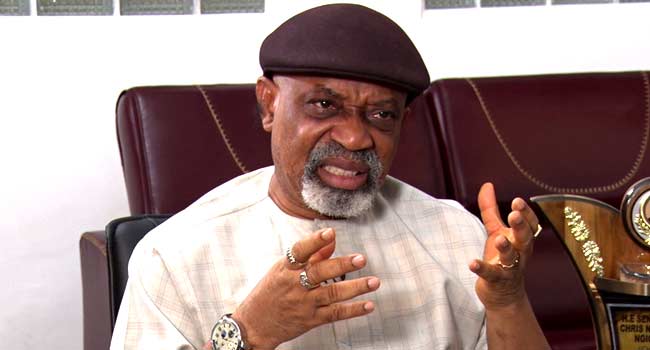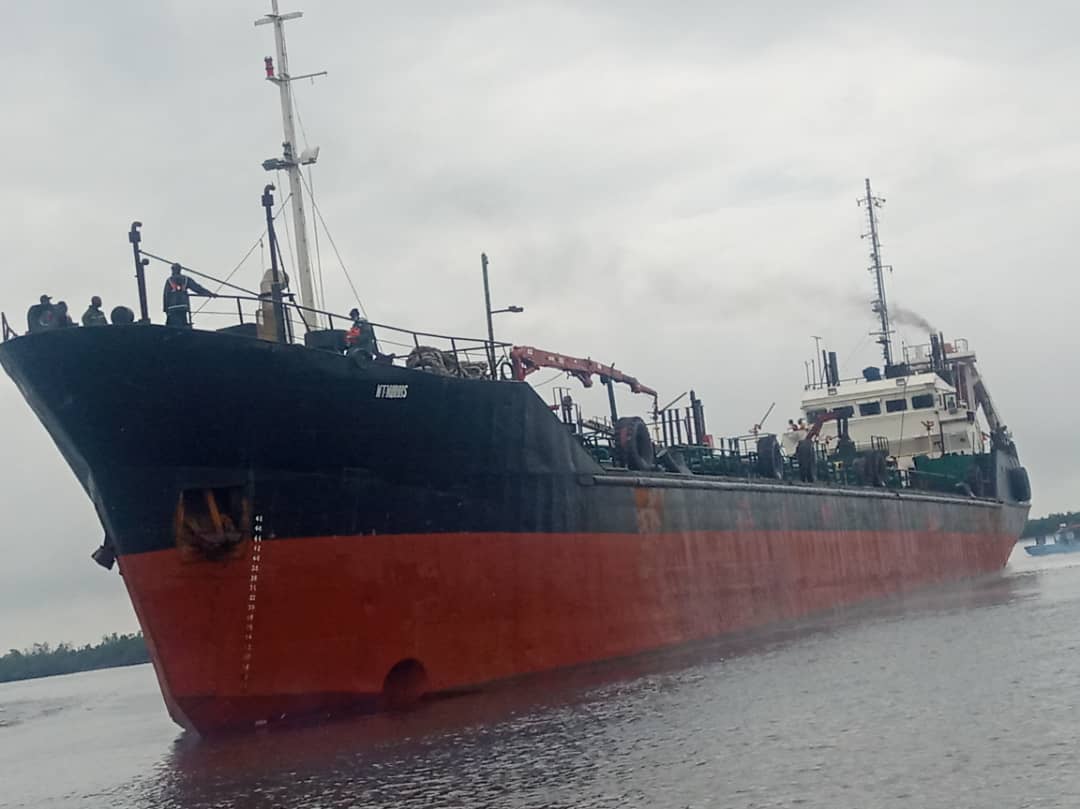Approximately 40% of the volumes credited to crude losses in the Nigerian petroleum industry are actually attributable to measurement inaccuracies and not theft as often reported.
The Chief Executive of the Nigerian Upstream Regulatory Commission (NUPRC), Engr Gbenga Komolafe stated this in Lagos at the Petroleum Club Quarterly Dinner, said the revelation followed a forensic audit conducted by the Commission covering the period January 2020 to November 2022 on crude theft numbers. The audit was to ascertain with accuracy the stolen volume of crude oil within the reference period.
Delivering a speech on “Nigerian upstream petroleum sector: value optimization, energy transition and regulatory perspectives”, Engr. Komolafe said the Commission is committed to dealing with the issue of metering errors by ensuring that Original Equipment Manufacturers (OEMs) licensed directly as agents of the Commission will be responsible for deployment and maintenance of metering facilities across the Nigeria’s oil and gas facilities, for transparency in hydrocarbon accounting.
The reform measure adopted by the Commission offers a paradigm shift from the trajectory in Nigeria’s hydrocarbon measurement since oil was discovered in Nigeria in Oloibiri in 1956; and is aimed at ensuring that no one becomes a judge in his own case.
Admittedly, one major area of value erosion in the industry is the menace of crude oil theft. Our records indicate that the menace of oil theft has negatively impacted the oil and gas sector for about two decades with attendant huge financial losses to our nation. The Commission, in collaboration with the various arms of the Security forces, the NNPC Limited and the host communities, have been able to suppress the ugly trend of hydrocarbon value decimation. Now, our nation has continued to record good dividends of these collaborative efforts as production figures are progressively increasing. The January 2023 volume is approximately 1.5 million barrels per day of oil and condensates. It is expected that this number will continue to increase as further measures are introduced and sustained to remove all illegal connections that aid crude oil theft.
Currently, Nigeria is flaring about 10% of gas produced, a feature the Commission is also determined to eliminate through the on-going Gas Flare Commercialization Programme (GFCP). Nigeria produces about 8BSCF/D of gas, out of which approximately 20% is delivered to the domestic market, approximately 40% is exported to international markets, 30% is utilised for producer’s internal consumption and the excess gas is flared.
In alignment with our objectives, as outline in Section 6 of the Petroleum Industry Act, the Commission is diligently pursuing the basic regulatory goals which include: increasing Nigeria’s oil and gas reserves and production, developing a transparent approach to hydrocarbon accounting, and attaining operational efficiency and effectiveness in industry operations.
In addition, the Commission is committed to facilitating peace and harmony in the host communities to guarantee conducive operating environment for investors, positively impacting on operating cost and attracting more investment opportunities. Komolafe outlined the measures undertaken by the Commission. Excerpts:
Strategic Actions for Hydrocarbon Value Optimization
In keeping with industry laws and regulations, the Commission has issued a licensing round guideline and published a licensing round plan for a total of seven open blocks (300-DO, 301-DO, 302-DO, 303-DO, 304-DO, 305-DO & 306-DO). We are currently evaluating the Expression of Interest (EOI) received from prospective investors. The exercise is indeed expected to be a huge success for Nigeria and a big step towards growing the nation’s oil and gas reserves. This will be done through aggressive exploration and development efforts.
Also, as part of our strategy for value optimization and increased production from our national oil and gas reserves, the Commission has focused on regulatory initiative aimed at reviving declining wells through enhanced oil recovery approach. We are working with operators to identify candidate wells and appropriate interventions that would lead to increased production.
In addition, the Commission is focusing on shut-in wells which can be revived. In pursuance of this, The Commission inaugurated a committee on June 23, 2022, to conduct industry-wide study on reactivation of Shut-in strings. The committee has submitted its report, and includes recommendations categorised into Quick Wins, Medium and Long-Term initiatives that will enhance national oil and gas production volumes.
Findings from the report revealed that over 900,000 barrels of oil per day can be earned from the quick win interventions while the medium and long-term initiatives could potentially add 1.2 million barrels of oil per day if properly and fully implemented. The total number of strings that need to be revived is also known and we have commenced engagement with the relevant operators to operationalize the initiative.
We have also completed the 2020 Marginal Field Bid Round and issued fifty (50) Petroleum Prospecting Licenses (PPLs) to deserving awardees. It is expected that with the existing discoveries in the awarded fields, early Field Development Plan (FDP) would be pursued by the awardees leading to incremental oil and gas production. On its part, the Commission is facilitating timely approvals for expedited re-entry and early production. The estimated incremental production from the awarded fields is approximately 58,000 bpd and 87mmscf/d.
In the short/medium term, we expect an estimated incremental volume of 461,000bpd and 565mmscf/d from new wells and well re-entry. In the long term we expect an estimated incremental volume of 162,000bpd and 868mmscf/d from FDPs which have been approved and are at various stages of execution.
Implementation of Host Community Provisions under Section 235 of PIA
Section 235 of the PIA 2021 saddles the Commission with the responsibility of ensuring conducive and peaceful relationship among stakeholders within the Host Community through the implementation of the Host Communities Development Trust.
The Commission, in collaboration with the relevant stakeholders, has developed templates and gazetted regulations, which includes that of the Host Community Development Trust (HCDT). The essence of the HCDT is to integrate oil bearing communities into the value chain and effectively cater for the development needs of impacted communities, thus positively curbing restiveness in such communities and offering enabling environment for operators to thrive. This is expected to guarantee seamless operation, boost investor confidence, and provide enabling environment for sustainable development of the country’s hydrocarbon resources. We are happy to disclose that over 60 Host Community Development Trust have been approved by the Commission. This is indeed a milestone in the implementation of the PIA, 2021.
FDP Budget, Cost Monitoring and Benchmarking
Our strategic thrust is to ensure that all our interventions as regulator translate into significant reduction in the cost of doing business in the upstream petroleum industry. In addition to these measures, Section 8 of the petroleum act mandates the Commission to undertake the commercial regulation of the operations of the industry as well as develop cost studies and benchmarks for the evaluation of upstream petroleum operations.
The focus on cost reduction as it relates to unit operating cost (UOC) stems from a comparative analysis of other jurisdictions, with a view to determining where we want to be. Our current UOC ranges from $15 (deep offshore) to $25 (onshore/shallow waters). It is obvious that Nigeria needs to improve its cost efficiency.
Development of priority regulations as tool for sanity and predictability – Section 216
The Commission is committed to creating enabling and predictable regulatory environment via the development of regulations that will give meaning and intent to the PIA 2021. In view of that, some priority regulations for the upstream petroleum sector have been developed by the Commission within its short existence. The Act also provides for a consultative forum to be held for the concurrence and input from all stakeholders in the upstream petroleum operations before the finalization of regulations. Five (5) of the regulations have been completed and gazetted while thirteen (13) other draft regulations have been reviewed with stakeholders and awaiting gazetting.
INITIATIVES TO ENHANCE GAS PRODUCTION
In line with the Federal Government’s declaration of the period 2021 – 2030 as the Decade of Gas, the Commission is taking steps to expand and develop the Nation’s huge gas resources through enhanced gas exploration, development and utilization schemes. This will ultimately lead to gas reserves’ growth, increased gas production, maturation of domestic and export gas market, as well as gas flare elimination.
Furthermore, in the face of the global energy transition and the need for cleaner sources of energy, gas is being positioned as our immediate transition fuel to lower the Nation’s carbon emission footprint in line with our climate change commitment.
Climate action plan in FDPs and operations
Our commitment to the various climate agreements places a demand on us all to keep global temperature rise within 1.5 °C – 2.0 °C of pre-industrial levels. The implication of this for Nigeria’s oil and gas industry are far-reaching. The need to decarbonise our production facilities not only requires the right policy direction but also demands adequate measurement of all greenhouse gas (GHG) emissions to ensure we achieve our net-zero target by 2060.
The Commission supported the review and assessment of the national GHG emissions as part of series of workshops that led to revision of the Nationally Determined Contributions (NDCs) policy submitted to the United Nations Framework Convention on Climate Change (UNFCCC) ahead of the 26th Conference of Parties (COP26) summit in Glasgow, Scotland 2021. Fugitive methane emission reduction target (60%) from Oil & Gas was added to Nigeria’s NDC for the first time based on robust data provided by the NUPRC.
The development of guidelines on the management of fugitive methane and GHG emissions in the upstream sector that will drive emission reduction and mitigations targets of the National Determined Contributions (NDCs) has been approved and is being operationalized. The Commission is currently engaging the International Finance Corporation (IFC) on opportunities surrounding Carbon Capture Utilisation and Storage and development of national framework on CCUS.
We look forward to a more collaborative working relationship with the operators in the industry for value optimization. Such collaborative aspirations would target unlocking the huge potentials we have as a nation in the Deep Play prospects, Frontier Basins and the Deep Offshore environments.
We would also be leveraging on technology to achieve our mandates by ensuring all our processes become fully automated and more transparent in line with the prescriptions of the PIA. Furthermore, relevant guidelines that will provide clarity on every aspect of oil and gas operations will be issued by the Commission in keeping with our core values.
Signed:
Engr. Gbenga Komolafe, FNSE
Commission Chief Executive
February 17, 2023

